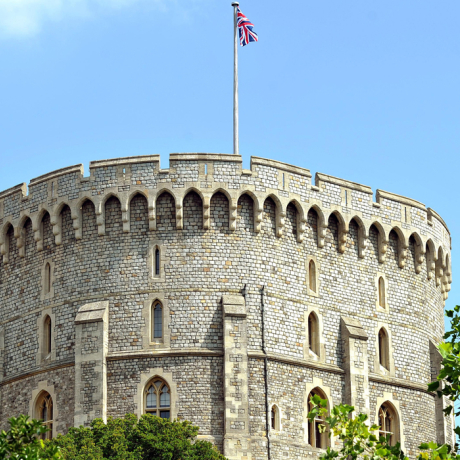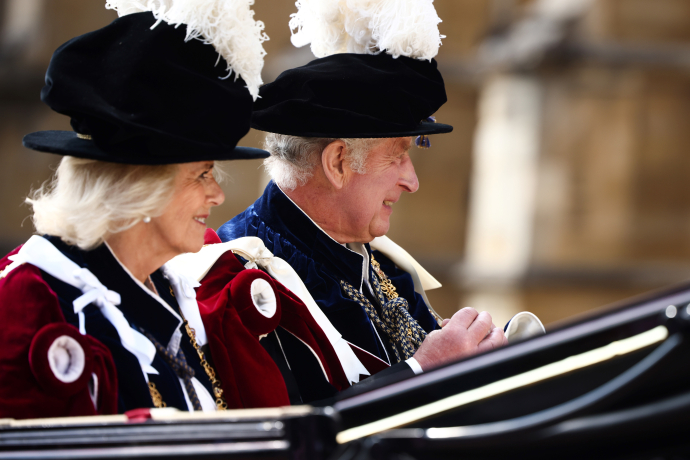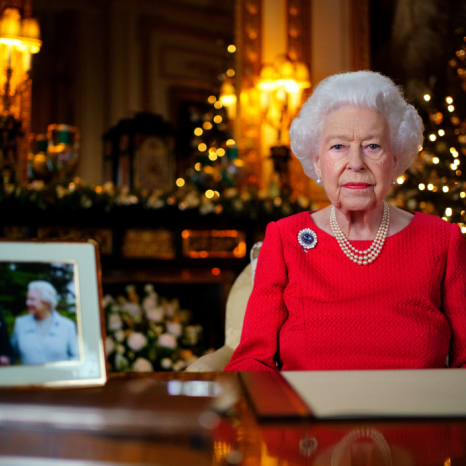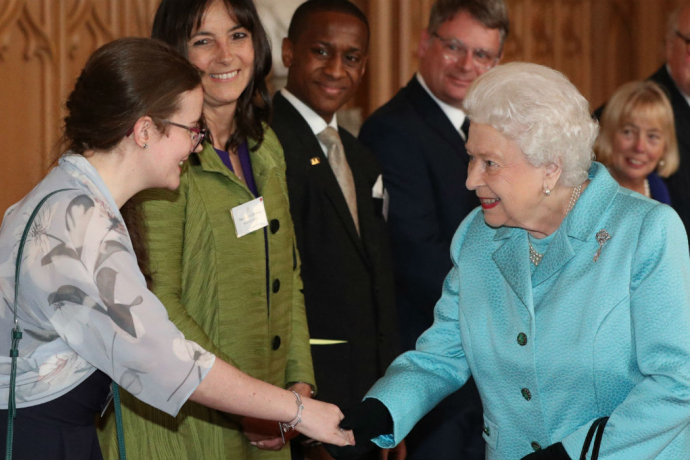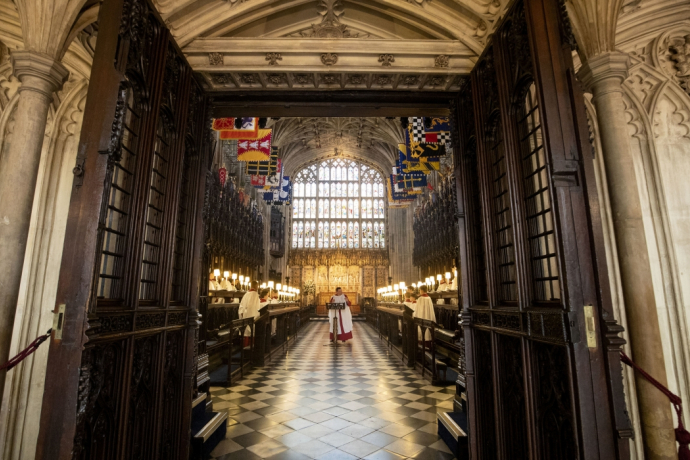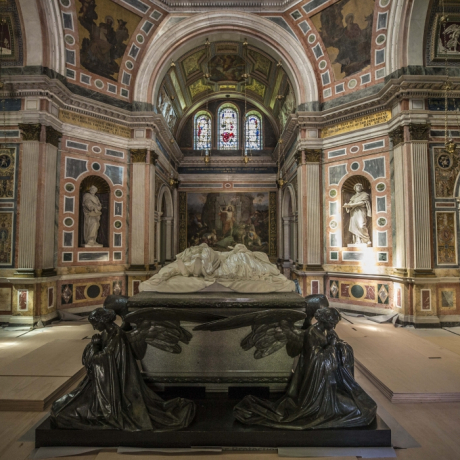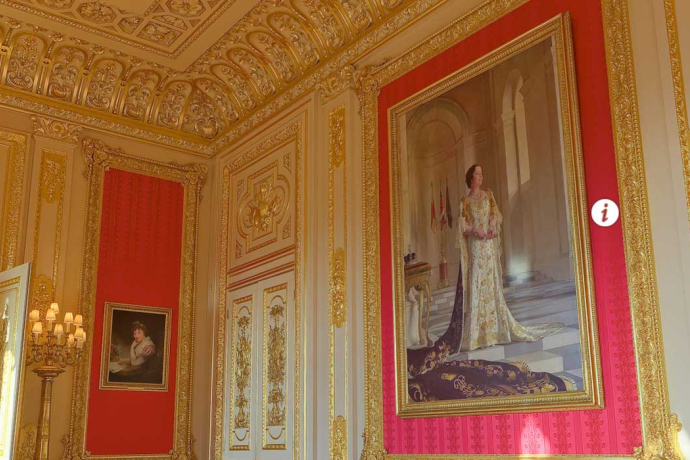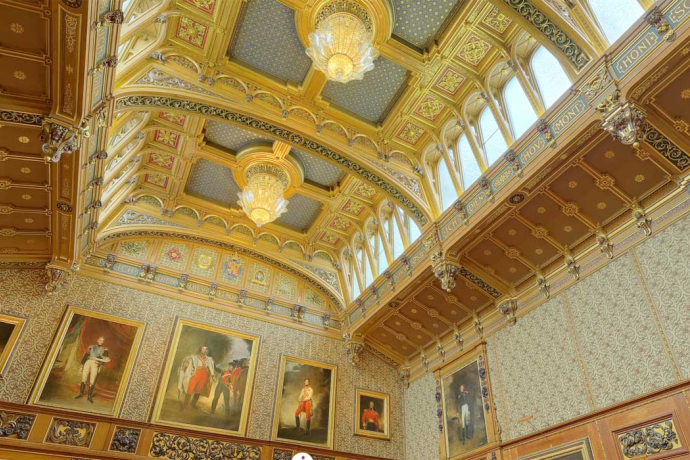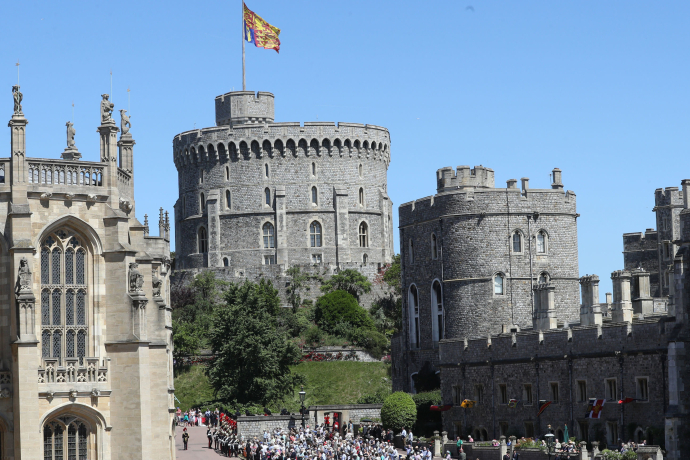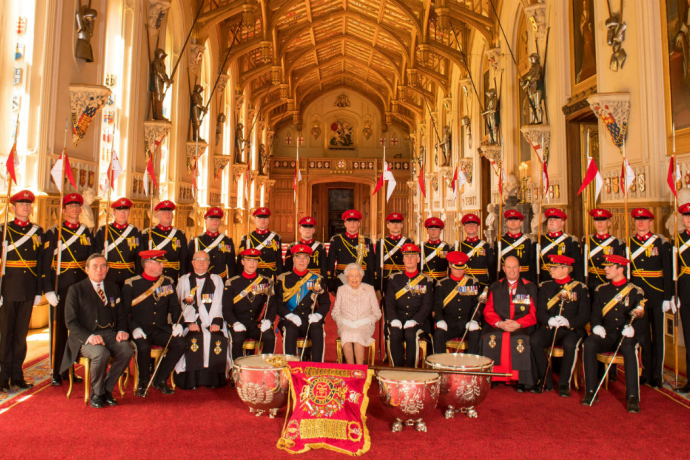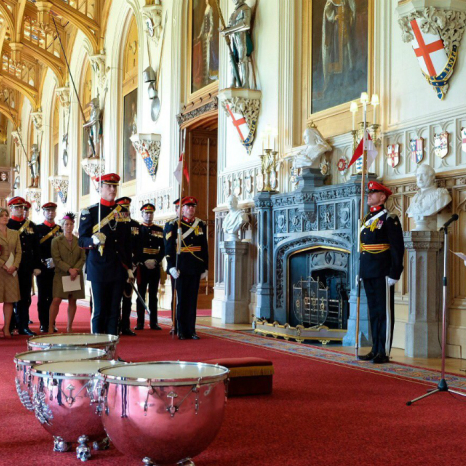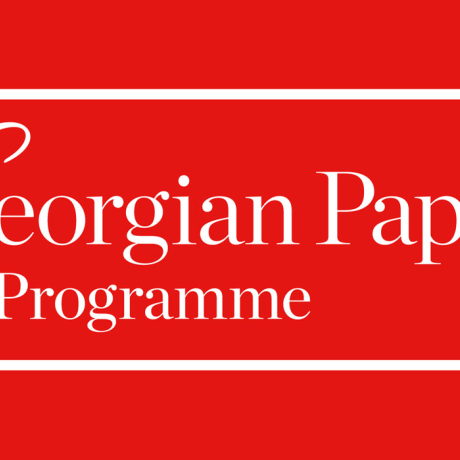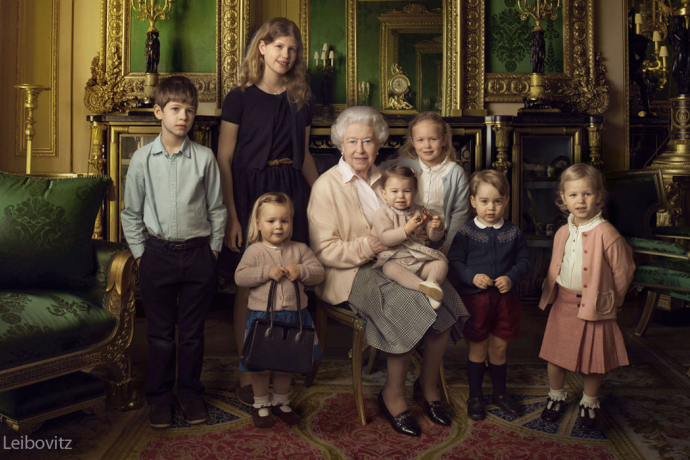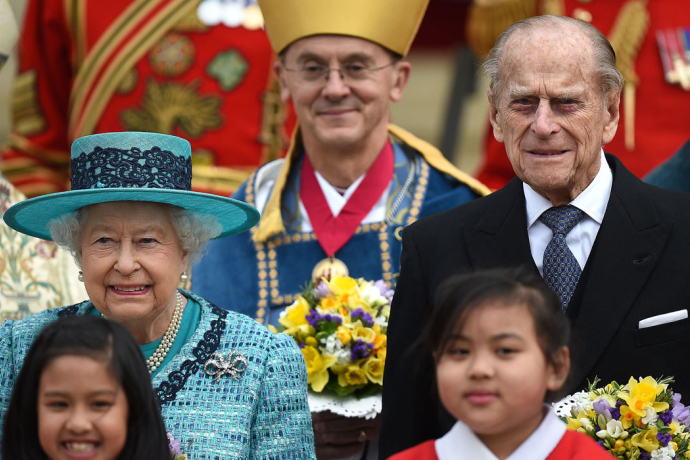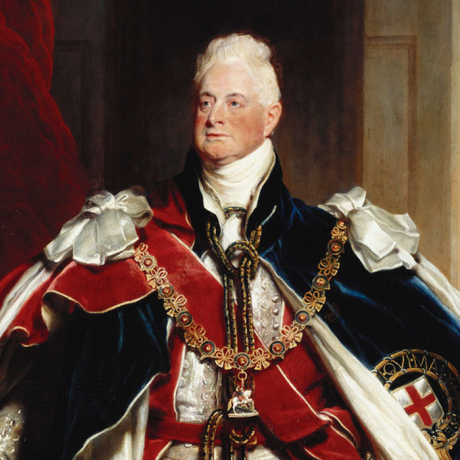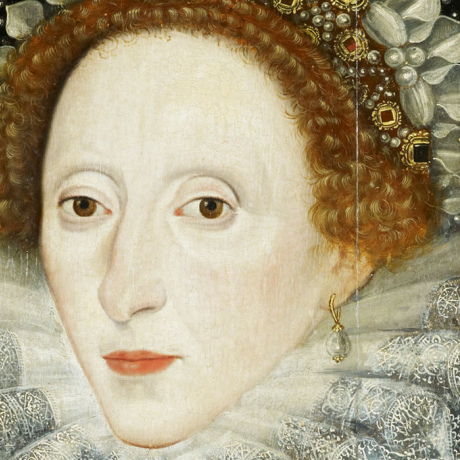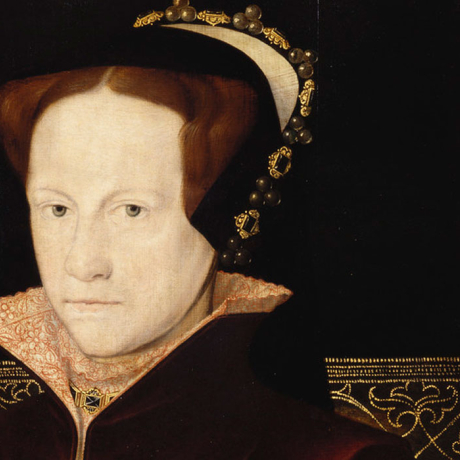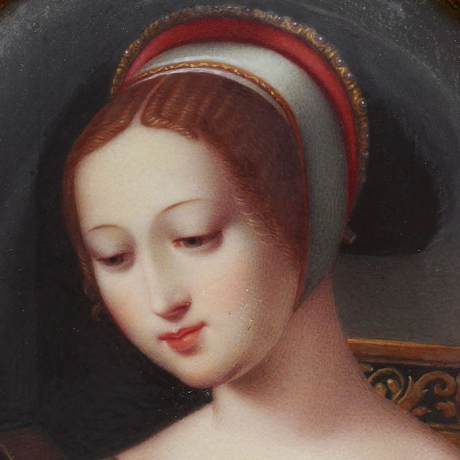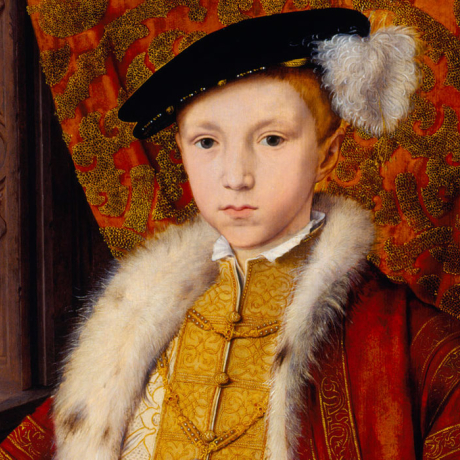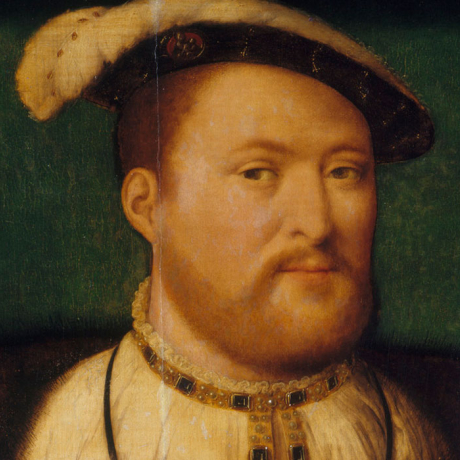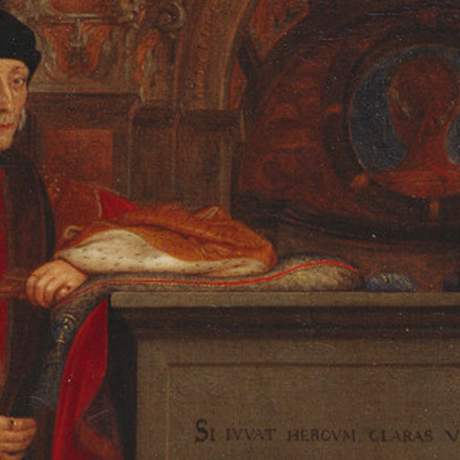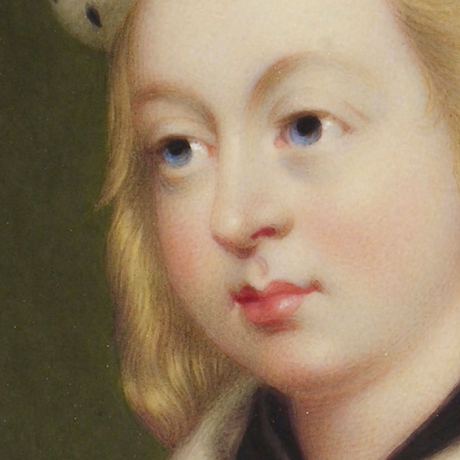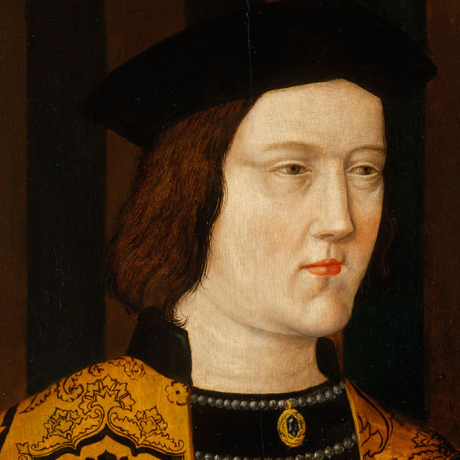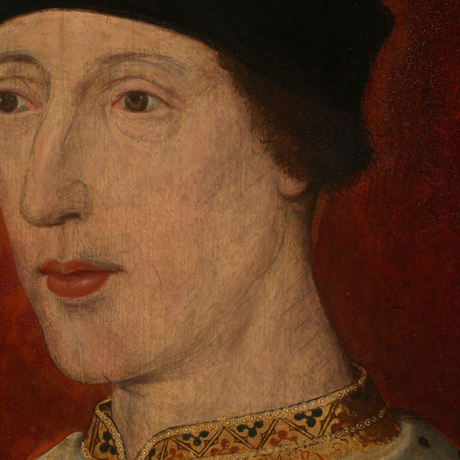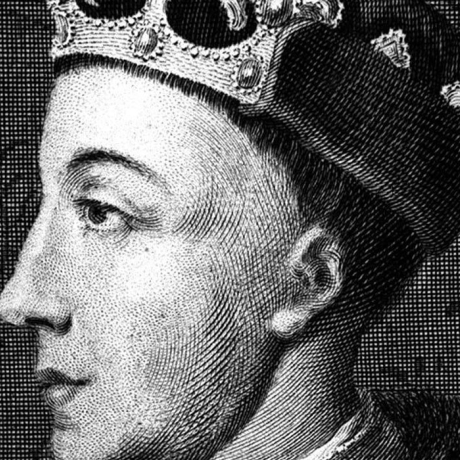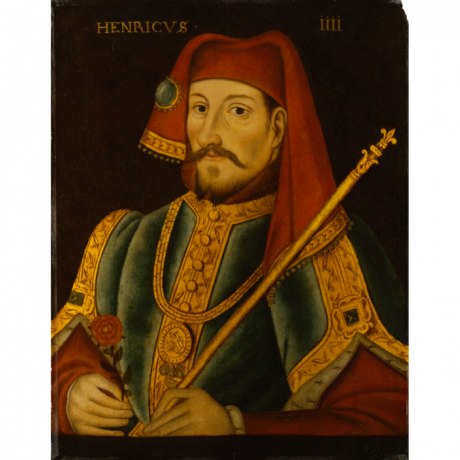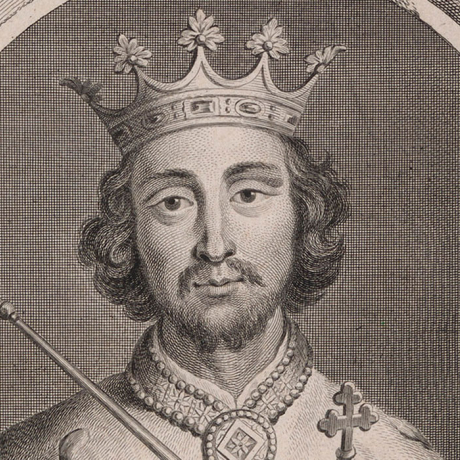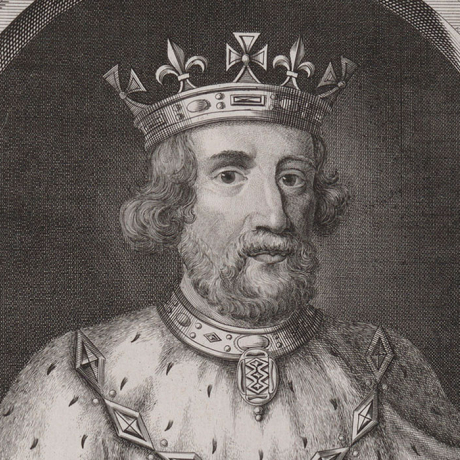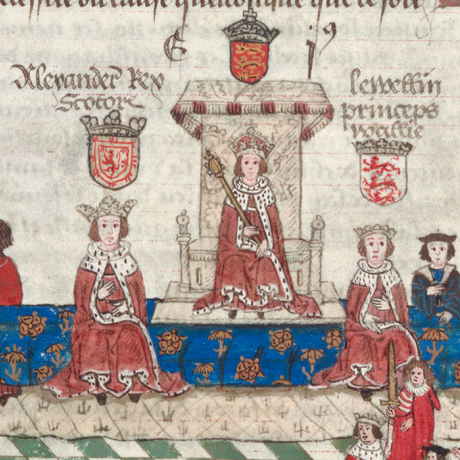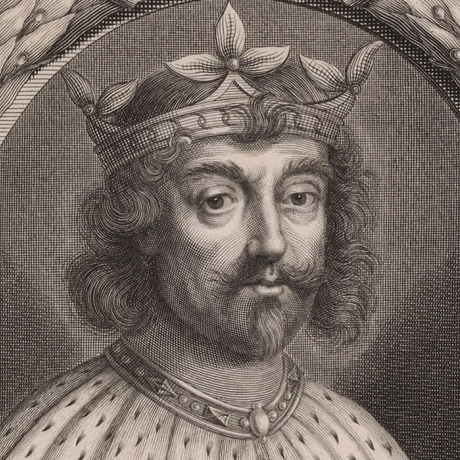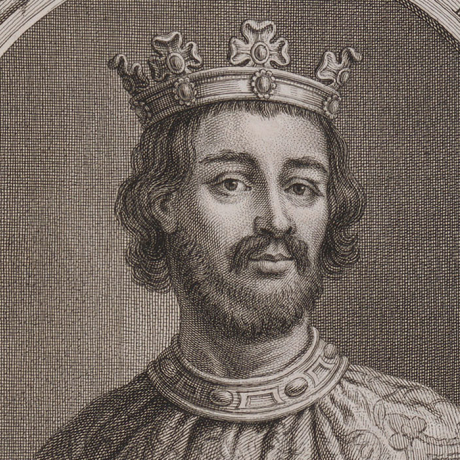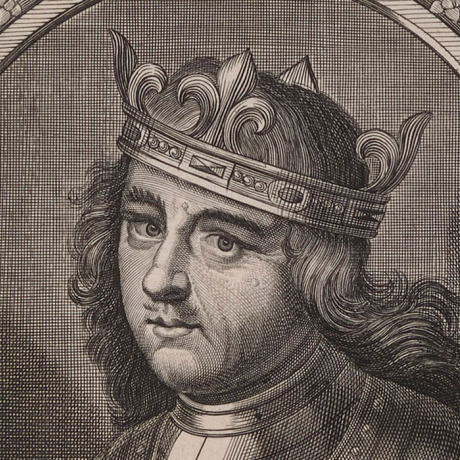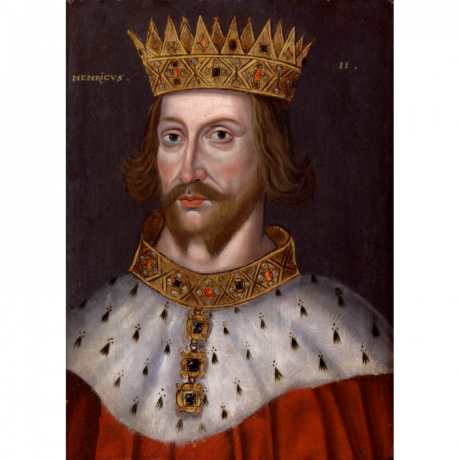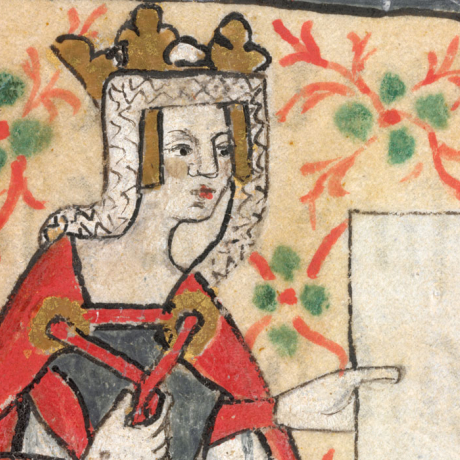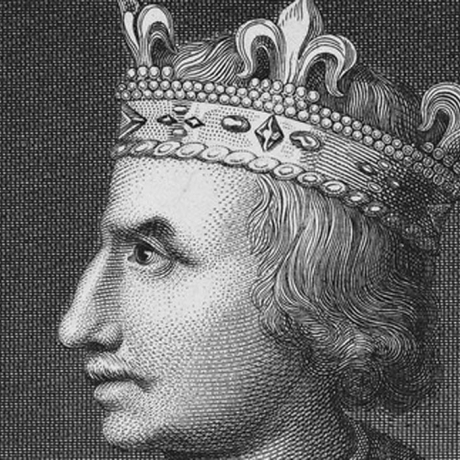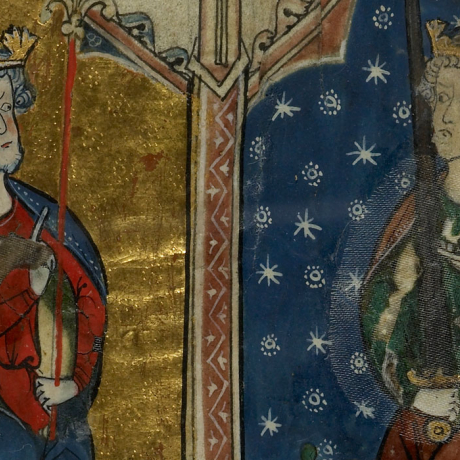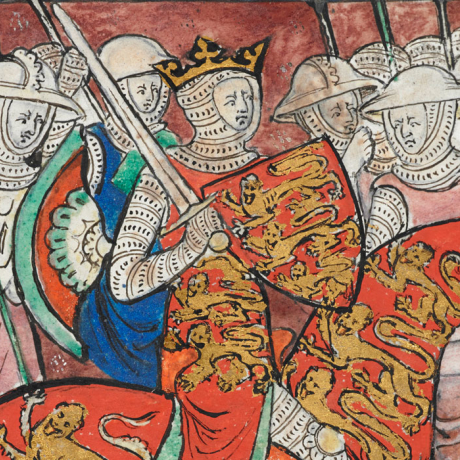- About
- Collections in the Royal Archives
- Access to the Royal Archives
- FAQs
- Guides and publications
- Useful contacts
About
The iconic Round Tower of Windsor Castle is home to the Royal Archives – a unique collection of documents relating to the history of the British Monarchy over the last 250 years. The Royal Archives preserves the personal and official correspondence of monarchs from George III (1760-1820) onwards, as well as administrative records of the departments of the Royal Household.
From diaries and personal letters to account books and speeches, the collections held by the Royal Archives record and reflect some of the most significant moments in British history and provide a fascinating insight into the life and work of past monarchs, their families, households and residences.
The origins of the Royal Archives
The Royal Archives were first established in 1914, during the early years of the reign of George V. The need for an archive for the papers of the Royal Family and the Royal Household had become evident only a few years earlier, following the death of Queen Victoria in 1901. Previously, historic records had been stored in tin trunks, cupboards and storerooms in the various royal residences, with no appointed archivist to care for them. However, the legacy left by Queen Victoria’s 63-year reign, in the form of a vast collection of official and private correspondence, required a permanent home.
Queen Victoria’s son, Edward VII, appointed Lord Esher as the first Keeper of the Royal Archives shortly after Victoria’s death. A few years later, following George V’s declaration in 1912 that ‘All the Royal Archives shall be kept in a Strong Room or Rooms in the Round Tower’, work began to construct a Muniment Room in the top half of the medieval Great Hall in the Round Tower. The first records were transferred to the new Muniment Room in 1914.
The development of the archives
Other collections were soon added to the Victorian records, including the papers of George III and George IV, the military papers of the Duke of Cumberland and the papers of the exiled Stuarts after 1688. (Please see the Collections in the Royal Archives page for more details.) Private papers of earlier Sovereigns and members of their families have not survived for the most part. Surviving official correspondence of Sovereigns before George III can be found in The National Archives.
Over the last few decades, the Royal Archives has grown rapidly. The official papers of George V, Edward VIII and George VI have all been added, as have the private correspondence and diaries of George V and Queen Mary. Papers of other members of the Royal Family have also been placed in the Royal Archives, including those of Queen Elizabeth The Queen Mother. Household papers from Queen Elizabeth II’s reign are transferred to the Royal Archives when they are no longer required for current use.
The archives online
The last few years have seen the Royal Archives embark on some exciting projects. In 2012, to celebrate the Diamond Jubilee of Her Majesty The Queen, all 141 volumes of Queen Victoria's Journal were digitised, transcribed and made available online at www.queenvictoriasjournals.org. The same year, records of Royal Household staff from 1660 to 1924 were digitised and made available online by Find My Past at www.findmypast.co.uk.
To celebrate the centenary of the Royal Archives in 2014, a book, Treasures from the Royal Archives, was published, featuring some of the most significant items in the collections. A number of these treasures were also put on display in an accompanying exhibition at Windsor Castle (now closed) and these can still be viewed on the Royal Collection Trust website.
The Royal Archives has recently completed a project to digitise the Stuart and Cumberland papers, and in conjunction with King's College London and other partners, is also undertaking a major digitisation and cataloguing programme to make available online the historic records from the Georgian period, totalling more than 350,000 pages. Please see the Georgian Papers Programme microsite for more information. The Royal Archives is also contributing to the Royal Collection Trust's Prince Albert digitisation project. This website, launched in August 2019, currently features more that 17,500 documents, prints and photographs relating to Prince Albert's life and achievements.
Collections in the Royal Archives
At present, the Royal Archives does not have an online catalogue. Please read below for details of our various online resources.
To access the Royal Archives page on The National Archives Discovery catalogue, which provides an overview of some of our collections, please visit The National Archives' website.
The Georgian Papers
The Royal Archives contains a number of collections of papers, mostly dating from the reign of George III (1760-1820) onwards. The official papers of George III, George IV and their private secretaries were one of the first collections added to the newly-created Royal Archives in 1914, following their discovery in the basement of Apsley House, the Duke of Wellington's London residence. These important papers had been quite forgotten since George IV's executor, the first Duke of Wellington, had placed them there, labelled 'To be destroyed unread'. The collection was presented to George V by the fourth Duke of Wellington.
Letters to George III from members of his family have also survived, as have numerous notes, essays and reflections in his own hand. Private correspondence of George IV as both King and as Prince of Wales also forms a significant collection.
The official correspondence of William IV was destroyed, virtually in its entirety, after his death in 1837 by his surviving executor; however, some of the papers of his two Prime Ministers, Lords Grey and Melbourne, have been given to the Royal Archives. Only a small amount of material has survived in the Royal Archives for the earlier Hanoverian monarchs, George I and George II.
The Royal Archives has embarked upon a digitisation project to make the collection of George III's official and private papers available online. The papers of George IV and surviving material from the reigns of Kings George I, George II and William IV will also be included. To access the Georgian Papers Programme online catalogue, please visit Georgian Papers Online.
Queen Victoria and King Edward VII
The official and private papers of Queen Victoria and Edward VII and some members of their families form a large part of the Royal Archives. Queen Victoria in particular was a prolific letter-writer and the collection retains much of her correspondence with relations, friends and government ministers throughout her life.
In the first years of his marriage to Queen Victoria, Prince Albert gradually took control of her official correspondence and created a highly organised filing system, in which the papers from that period are still kept. After the Prince's death, the Queen's papers accumulated more haphazardly until the 1890s, when her Assistant Private Secretary began the large task of organising them.
This work was continued in Edward VII's reign by Viscount Esher, who also edited three volumes of Queen Victoria's early correspondence (published in 1907; other editors subsequently published five further volumes covering the Queen's later years).
Queen Victoria also kept a detailed journal, a unique historical source for the period, and the manuscript volumes are housed in the Royal Archives. The majority of the volumes are not in Queen Victoria's own hand, as she left instructions that, after her death, her youngest daughter Princess Beatrice, should edit the diaries. Princess Beatrice destroyed the originals after editing them, apart from those written by Queen Victoria as Princess between 1832 and 1837. Queen Victoria's Journals are available to view online at www.queenvictoriasjournals.org with full transcripts, digitised images and advanced search options. Please note this resource is available to users in the UK only and via certain overseas institutions which have purchased a subscription to the site.
Documents relating to Prince Albert can be found in the Royal Collection Trust's website on the life and achievements of Prince Albert at https://albert.rct.uk/
20th Century Collections
Official and private letters from the reigns of George V, Edward VIII and George VI have been added to the Royal Archives over the years, including papers relating to public engagements and patronages. Both George V and Queen Mary kept a daily diary throughout their lives and these volumes are now kept in the archives. Papers of other members of the royal family, including Queen Mary and Queen Elizabeth The Queen Mother have also been transferred to the Royal Archives, as have documents from Princess Elizabeth's (now Queen Elizabeth II) Household.
Household and Estate Papers
The Royal Archives also holds records generated by the departments of the Royal Household. These include records of the department of the Master of the Horse from the eighteenth century onwards; of the Privy Purse from the nineteenth century onwards; and of the departments of the Private Secretary, Lord Chamberlain and Lord Steward (the latter now called the department of the Master of the Household) from the twentieth century. Household papers from the Queen Elizabeth II's reign are transferred to the Royal Archives when they are no longer required for current use.
The National Archives holds records of the departments of the Lord Chamberlain and the Lord Steward up to 1901. Papers of the Lord Chamberlain's Office relating to theatre censorship from 1901 to 1968 are in the collections of the British Library.
Papers relating to the private royal estates of Balmoral and Sandringham are also held by the Royal Archives, as are smaller collections relating to Windsor and Osborne.
Records of Royal Household staff from 1660 to 1924 have been digitised and made available online by Find My Past. Please note that a subscription to the site is required in order to view images of original records.
Other Royal Archives Collections
The Wardrobe accounts for 1660 to 1749 are the earliest series of Royal papers in the Archives. They consist of three parallel series of warrants, bills and receipts, relating to the supply of furniture and furnishings for Royal palaces, and of Royal liveries and ceremonial robes. These volumes were kept by the Dukes of Montagu, as Masters of the Great Wardrobe (a forerunner of the present Master of the Household), and were presented to the Archives by the Duke of Buccleuch in 1914. A similar set of Wardrobe accounts are also held by The National Archives.
The Stuart papers (c.1689-1800) are the papers of the exiled Stuarts: King James II from the period of his exile in 1689 onwards, Prince James Francis Edward Stuart ('The Old Pretender') and his sons, Prince Charles Edward ('The Young Pretender') and Prince Henry Benedict (Cardinal Duke of York). This collection was purchased in Italy for George IV after the death of Cardinal Stuart in 1807 and had been held in the Royal Library since the 1830s, until its transfer to the Royal Archives in 1914.
The Cumberland papers (1745-65) are the papers of King George II's son, William Augustus, Duke of Cumberland. They principally comprise the Duke's correspondence as Captain-General of the Army and papers relating to his office as Ranger of Windsor Great Park. This collection came to the Royal Archives from the Royal Library in 1914. The Stuart and Cumberland Papers are now digitised and available to view on State Papers Online (institutional subscription required or free to view at The National Archives).
Two other important collections held by the Royal Archives are the Howick and Melbourne Papers, which shed light on the politics of the reign of King William IV, whose own papers have not survived. The Howick Papers, presented to the archives by 5th Earl Grey, contain letters between William IV and Charles, 2nd Earl Grey, who was Prime Minister between 1830 and 1834. The papers of Lord Melbourne (Prime Minister in 1834 and 1835 to 1841), include all his ministerial letters, as well as much royal correspondence.
Access to the Royal Archives
The Royal Archives applies four principles when considering requests for information from, or access to, its historic collections:
1. ‘Information First’: Access to the collections is on the basis of information sought.
2. Unique Content: Consideration will be given to applications where the material or content can be found only in the Royal Library and Royal Archives. Where it can be accessed elsewhere (for example, online or in other libraries or archives), external researchers will be expected to have consulted those sources first.
3. Historical Research: Access is granted for the purpose of ‘historical research’. This term is widely defined, and recognises the huge range of subjects and themes and the myriad ways in which research is conducted.
4. Equitable Access: The Library and Archives aim to provide access to a wide range of applicants, and this may mean that, from time to time, repeat applicants may be rejected in favour of those applying for the first time.
As the Royal Archives receives a significant amount of enquiries and requests for research access every week, there may be some delay in the receipt of a full reply to your enquiry. We therefore request your patience, and assure you that we will reply as soon as we are able. Please consult the Access to the Royal Archives information and FAQs before submitting your enquiry.
Access to the Royal Archives is granted solely at the discretion of the Keeper of The King’s Archives.
Please contact the Royal Archives using the email contact form on the Royal Collection Trust website or by writing to The Royal Archives, Windsor Castle, Windsor, Berkshire SL4 1NJ.
Please note that we have limited researcher facilities and security clearance is necessary before visiting the Royal Archives, therefore appointments must be made well in advance. If you are travelling from abroad, please contact us well ahead of your visit in order to reserve a research room seat.
All media requests for access to the Royal Archives should be directed to the Royal Collection Trust Press Office in the first instance.
Access to Records in the Royal Archives
Access to the records held in the Royal Archives is granted solely at the discretion of the Keeper of The King’s Archives.
The Royal Archives is subject to the Data Protection Act and General Data Protection Regulation (GDPR). For access to personal information about yourself (‘subject access’) in the Royal Household, including the Royal Archives, application should be made to The Data Protection Manager, Information Assurance, Buckingham Palace, London, SW1A 1AA.
The Royal Household is not a public authority, as defined by the Freedom of Information Act 2000 and the Freedom Information (Scotland) Act 2002, and as such the Acts do not relate to access to records held in the Royal Archives. Also, the records in the Royal Archives are not defined as public records under the terms of the Public Records Acts.
Although exempt from FOI requirements, the Royal Household is committed to transparency, and to making information available, where appropriate.
Regarding the papers it holds of government business, it is the policy of the Royal Archives to follow voluntarily the regulations on closure and release to which counterpart papers in The National Archives are subject.
FAQs
FAQs
Genealogy
The Royal Archives does not hold general records of the sort which might be useful for genealogy. In the first instance, we recommend using an online resource such as Ancestry or Find My Past. The Society of Genealogists, which is based at 40 Wharf Road, London, N1 7GS, will also be able to offer guidance on family history research.
www.ancestry.co.uk
www.findmypast.co.uk
www.sog.org.uk
My ancestor worked in the Royal Household. Do you have details about them?
The Royal Archives has references to people employed in the Royal Household from the 18th century, indexes to names of people employed from 1660 onwards and a few records relating to the Royal Household in the sixteenth century. Please visit the Royal Archives Collection on Find My Past to search these records (a subscription to the site is required in order to view images of original documents). Otherwise please write to us with your enquiry, including as much detail as possible, and send it to:
The Royal Archives,
Windsor Castle,
Windsor,
Berkshire SL4 1NJ
or use the email contact form on the Royal Collection Trust website.
For earlier periods, please contact The National Archives at Ruskin Avenue, Kew, Richmond, Surrey TW9 4DU or via the National Archives website
My ancestor was a guard who attended the Sovereign. How do I find out more?
Service records of soldiers in the regiments of Foot Guards and the Household Cavalry, which guard the royal palaces, are held by The National Archives.
The police officers who provide personal security for the royal family are members of the Metropolitan Police, the historic records for which are also in The National Archives.
My ancestor was a Court dressmaker. Can you provide further information?
Court dressmakers made clothes for members of the general public who attended functions at Court, rather than specifically for the Sovereign and other members of the royal family. Consequently, the Royal Archives does not hold information about these individuals.
My ancestor is said to have been a pall bearer at the funeral of Queen Victoria. Can you confirm this?
Whilst records in the Royal Archives do show which military units provided the pall bearers at royal funerals, they do not give the names of the individuals concerned.
My ancestor carried out building work on one of the royal palaces. Can you supply further information?
Building work on royal palaces, both external and internal, was, until the 1990s, carried out by a government department, the Office (later Ministry) of Works. It is this department's records which should record the firms employed to carry out such work, and these records are in The National Archives.
I own an item which was supposedly formerly owned by a member of the royal family. How do I find out whether this is true?
The Royal Archives can sometimes help with such queries, but would need to have as much information as possible concerning the item and the story of how it left the royal family's possession - for instance, was it a gift to a particular person? Please enquire in writing, giving as many details as possible, and if possible an image of the item, to: The Royal Archives, Windsor Castle, Windsor, Berkshire SL4 1NJ or use the email contact form on the Royal Collection Trust website.
My ancestor was presented at Court. Can you supply any relevant information?
The Royal Archives does hold some registers of people presented at Court from the 1870s through to 1952. Earlier records of presentations at Court can be found at The National Archives. Please supply the name of your ancestor, and if possible, an idea of the year they were presented at Court. Please enquire in writing to: The Royal Archives, Windsor Castle, Windsor, Berkshire SL4 1NJ or use the email contact form on the Royal Collection Trust website.
My ancestor received a formal message from a member of the royal family. Can you provide any more information about the message?
A number of printed messages were sent by the Sovereign, particularly during wartime. These include facsimile messages sent by George V to American soldiers entering World War One in 1917 and a message of thanks sent by Queen Elizabeth in 1940 to all those who took in evacuees. Although we have no details of the recipients, we can supply some information about the messages. Please enquire in writing to: The Royal Archives, Windsor Castle, Windsor, Berkshire SL4 1NJ or use the email contact form on the Royal Collection Trust website.
Other FAQs
What documents do you hold from the Middle Ages and Renaissance?
The records held by the Royal Archives predominately date from the reign of George III (1760-1820). Papers from earlier periods and important documents such as Magna Carta and the Domesday Book are now in national collections such as The National Archives, the British Library and The National Library of Scotland.
I have a query about events or people in the reign of the present Queen. Can you help?
General public information enquiries, including anything related to the reign of the present Queen, are handled by the Public Information Office at Buckingham Palace. Please put your enquiry in writing to:
The Public Information Office,
Buckingham Palace,
London SW1A 1AA.
Guides and publications
Further information about the collections is available from the following sources:
- Download The Royal Collection Trust's 'A Guide to Collections' (PDF)
- Read an article about the Royal Archives entitled 'The Royal Archives at Windsor Castle: Into the 21st Century' (PDF)
- Find out more about the book 'Treasures from the Royal Archives' which is available from the Royal Collection Shop
Useful contacts
The National Archives
Records for UK Government 1066 onwards, and records previously stored at the Family Records Centre (births, marriages and deaths and Census records for England and Wales):
Ruskin Avenue
Kew
Richmond-upon-Thames
Surrey TW9 4DU
Tel: 020 8876 3444
Web site: www.nationalarchives.gov.uk
The National Records Scotland
Public records of Scotland:
HM General Register House
2 Princes Street
Edinburgh EH1 3YY
Tel: 0131 535 1314
Web site: www.nrscotland.gov.uk
The Public Record Office of Northern Ireland
Official records of government of Northern Ireland c.1830 onwards:
2 Titanic Boulevard
Belfast BT3 9HQ
Tel: 028 90251318
Web site: www.proni.gov.uk
National Archives of Ireland
Public records of Ireland:
Bishop Street
Dublin DO8 DF8S
Web site: www.nationalarchives.ie
Archives and Records Council Wales
For information on where to find public records of Wales:
Web site: archives.wales
The British Library
Major non-governmental archival collections relating to Britain:
96 Euston Road
London NW1 2DB
Web site: www.bl.uk
The National Library of Scotland
Non-governmental archival collections relating to Scotland:
George IV Bridge
Edinburgh
EH1 1EW
Web site: www.nls.uk
The College of Arms
Records of heraldry and coats of arms for England, Wales, Northern Ireland and the Commonwealth. Also the records of the Earl Marshal's Office, which include papers relating to Coronations and other State occasions:
130 Queen Victoria Street
London EC4V 4BT
Tel: 020 7248 2762
Web site: www.college-of-arms.gov.uk
The Court of the Lord Lyon
Records of heraldry and grants of arms for Scotland:
HM New Register House
Edinburgh EH1 3YT
Web site: www.lyon-court.com
Society of Genealogists
Genealogical reference library:
14 Charterhouse Buildings
Goswell Road
London EC1M 7BA
Tel: 020 7251 8799 (main switchboard)
Web site: www.sog.org.uk
Useful contacts
Useful contacts
The National Archives
Records for UK Government 1066 onwards, and records previously stored at the Family Records Centre (births, marriages and deaths and Census records for England and Wales):
Ruskin Avenue
Kew
Richmond-upon-Thames
Surrey TW9 4DU
Tel: 020 8876 3444
Web site: www.nationalarchives.gov.uk
The National Records Scotland
Public records of Scotland:
HM General Register House
2 Princes Street
Edinburgh EH1 3YY
Tel: 0131 535 1314
Web site: www.nrscotland.gov.uk
The Public Record Office of Northern Ireland
Official records of government of Northern Ireland c.1830 onwards:
2 Titanic Boulevard
Belfast BT3 9HQ
Tel: 028 90251318
Web site: www.proni.gov.uk
National Archives of Ireland
Public records of Ireland:
Bishop Street
Dublin DO8 DF8S
Web site: www.nationalarchives.ie
Archives and Records Council Wales
For information on where to find public records of Wales:
Web site: archives.wales
The British Library
Major non-governmental archival collections relating to Britain:
96 Euston Road
London NW1 2DB
Web site: www.bl.uk
The National Library of Scotland
Non-governmental archival collections relating to Scotland:
George IV Bridge
Edinburgh
EH1 1EW
Web site: www.nls.uk
The College of Arms
Records of heraldry and coats of arms for England, Wales, Northern Ireland and the Commonwealth. Also the records of the Earl Marshal's Office, which include papers relating to Coronations and other State occasions:
130 Queen Victoria Street
London EC4V 4BT
Tel: 020 7248 2762
Web site: www.college-of-arms.gov.uk
The Court of the Lord Lyon
Records of heraldry and grants of arms for Scotland:
HM New Register House
Edinburgh EH1 3YT
Web site: www.lyon-court.com
Society of Genealogists
Genealogical reference library:
40 Wharf Road, London, N1 7GS
Tel: 02072518799
Web site: www.sog.org.uk

